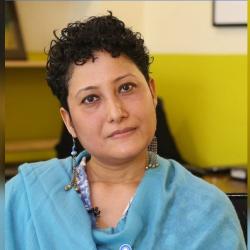Emergence of a composite silk unit, namely, Fabric Plus is a boon to the silk industry in Assam. Union minister for textiles, Dayanidhi Maran, on August 19 last, inaugurated a composite silk unit at Chaygaon industrial growth centre, near Guwahati. The project is estimated to cost around Rs.5.50 crore, including infrastructure for spun silk mill, machineries, working capital and looms etc. The promoters, Fabric Plus, have contributed an amount of Rs.22.60 lakh. The Central and State governments have provided a subsidy of Rs.155.30 lakh and Rs.48.10 lakh respectively, for installation of machineries and equipments etc. The total output from the mill is likely to support around 4000 Eri farmers in the state, by providing appropriate market linkage.
Sericulture has been practiced in Assam from time immemorial and state is proud of producing Muga, Eri and Mulberry silk. The entire sericulture sector, particularly, the pre-cocoon sector involves about 1.85 lakh household in the state, almost seventy percent involved in Eri-sector followed by 15 percent in each Mulberry and Muga sectors, informed, Mr. J Sampat, Joint Director (Publicity) Central Silk Board, Bangalore, to media persons at Guwahati.
The total raw silk production in the state of Assam during the year 2008-09 is reported to be 1261 MTs, which includes 1141 MTs of Eri silk, 105 MTs of Muga and 15 MTs of Mulberry silk. There has been steadily progress in Vanya (Eri and Muga) silk production. While there was a continuous progress in production of Muga silk, Eri silk production was increasing by leaps and bounds and reached new peaks, but there was a declining in Mulberry silk production, he said. Eri culture is quite popular and the activities are confined to women folk for secondary source of income. The catalytic development program me, jointly implemented by the Central Silk Board, department of sericulture, Government of Assam, has brought new areas under Muga and Eri sectors, created infrastructures in seed, reeling, spinning under weaving sectors and with the stakeholders and a large number of people have taken up Muga and Eri culture.
Sericulture development schemes being implemented by the Central Silk Board and the department of sericulture, Government of Assam includes the assistance of states and private garners for strengthening silkworm, seed production (Mulberry, Muga and Eri sectors), construction of rearing houses and crop insurance, support to silkworm rearers, for raising of nurseries and maintenance of food plantations of silkworms, providing services of master feelers, weavers, dyers to improve quality and productivity, support to agencies for up gradation and popularization of improved reeling, spinning devices to reduce drudgery and increase income of silk feelers and spinners, product development and diversification of Vanya silks for value addition.
The UNDP sponsored program me implemented during 1999-2003 was instrumental in systemizing the Muga and Eri silk industry and modernizing the finished products. The Muga reeling activities are mainly concentrated in Kamrup, Kokrajhar, Goalpara, Shivsagar, Tinsukia, Lakhimpur and Dhemaji districts. Bamundi under Sualkuchi area is the main reeling and weaving cluster of Muga silk. The Eri cocoon spinning activities are largely concentrated in Kamrup, Bodoland Territorial Autonomous District (BTAD), Goalpara, Karbi Anglong cluster. Mulberry reeling is done in government as well as private sectors, by using multi-end reeling ;machine located in Darrang, Shivsagar and Jorhat districts.
The Muga and Eri silk reeling and spinning activities are intensified with popularization of the CTR & TI, Ranchi improved Charkhas, Pedal motor operated reeling machines and RMRS improved Bani reeling machines and CSTRI, Bangalore spinning wheel, Amber Charkha spinning wheel. The large quantities of silk yarn produced in the state is utilized within the productions clusters and small quantity of Muga and Eri yarn is available outside the state.
With the introduction of tailor made technologies for host plant cultivation, silkworm rearing and post cocoon processing, there has been tremendous improvement in the quality and quantity of Eri silk in recent years. The production of Eri raw silk has gone up from 1485 MTs in 2006-07 to 2038 MTs in 2008-09 in the country. What’s needed is the forward linkage of a well equipped silk mill that could convert these cocoons into very fine count yarn, a much sought after raw material to design fine quality garments for the international market.
These initiatives would go a long way in organizing the Eri silk industry on systematic line more so the procurement/movement of Eri cocoons from areas of their origin and ensure sustained production of quality yarn of high quality in demand for production of value added products of Eri silk and in the process, it would also address the basic needs of employment and socio-economic upliftment of the rural populace in the country.
Sericulture has been practiced in Assam from time immemorial and state is proud of producing Muga, Eri and Mulberry silk. The entire sericulture sector, particularly, the pre-cocoon sector involves about 1.85 lakh household in the state, almost seventy percent involved in Eri-sector followed by 15 percent in each Mulberry and Muga sectors, informed, Mr. J Sampat, Joint Director (Publicity) Central Silk Board, Bangalore, to media persons at Guwahati.
The total raw silk production in the state of Assam during the year 2008-09 is reported to be 1261 MTs, which includes 1141 MTs of Eri silk, 105 MTs of Muga and 15 MTs of Mulberry silk. There has been steadily progress in Vanya (Eri and Muga) silk production. While there was a continuous progress in production of Muga silk, Eri silk production was increasing by leaps and bounds and reached new peaks, but there was a declining in Mulberry silk production, he said. Eri culture is quite popular and the activities are confined to women folk for secondary source of income. The catalytic development program me, jointly implemented by the Central Silk Board, department of sericulture, Government of Assam, has brought new areas under Muga and Eri sectors, created infrastructures in seed, reeling, spinning under weaving sectors and with the stakeholders and a large number of people have taken up Muga and Eri culture.
Sericulture development schemes being implemented by the Central Silk Board and the department of sericulture, Government of Assam includes the assistance of states and private garners for strengthening silkworm, seed production (Mulberry, Muga and Eri sectors), construction of rearing houses and crop insurance, support to silkworm rearers, for raising of nurseries and maintenance of food plantations of silkworms, providing services of master feelers, weavers, dyers to improve quality and productivity, support to agencies for up gradation and popularization of improved reeling, spinning devices to reduce drudgery and increase income of silk feelers and spinners, product development and diversification of Vanya silks for value addition.
The UNDP sponsored program me implemented during 1999-2003 was instrumental in systemizing the Muga and Eri silk industry and modernizing the finished products. The Muga reeling activities are mainly concentrated in Kamrup, Kokrajhar, Goalpara, Shivsagar, Tinsukia, Lakhimpur and Dhemaji districts. Bamundi under Sualkuchi area is the main reeling and weaving cluster of Muga silk. The Eri cocoon spinning activities are largely concentrated in Kamrup, Bodoland Territorial Autonomous District (BTAD), Goalpara, Karbi Anglong cluster. Mulberry reeling is done in government as well as private sectors, by using multi-end reeling ;machine located in Darrang, Shivsagar and Jorhat districts.
The Muga and Eri silk reeling and spinning activities are intensified with popularization of the CTR & TI, Ranchi improved Charkhas, Pedal motor operated reeling machines and RMRS improved Bani reeling machines and CSTRI, Bangalore spinning wheel, Amber Charkha spinning wheel. The large quantities of silk yarn produced in the state is utilized within the productions clusters and small quantity of Muga and Eri yarn is available outside the state.
With the introduction of tailor made technologies for host plant cultivation, silkworm rearing and post cocoon processing, there has been tremendous improvement in the quality and quantity of Eri silk in recent years. The production of Eri raw silk has gone up from 1485 MTs in 2006-07 to 2038 MTs in 2008-09 in the country. What’s needed is the forward linkage of a well equipped silk mill that could convert these cocoons into very fine count yarn, a much sought after raw material to design fine quality garments for the international market.
These initiatives would go a long way in organizing the Eri silk industry on systematic line more so the procurement/movement of Eri cocoons from areas of their origin and ensure sustained production of quality yarn of high quality in demand for production of value added products of Eri silk and in the process, it would also address the basic needs of employment and socio-economic upliftment of the rural populace in the country.
- Add new comment
- 15764 reads









Comments
Pages
Add new comment